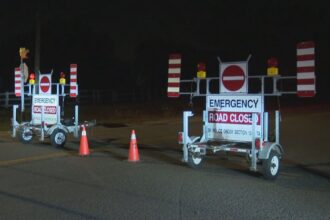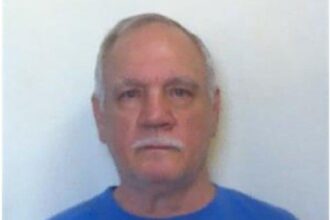In a sunlit café in downtown Toronto, 34-year-old Melissa Fairchild sits with remarkable composure as she recounts the day that changed everything. “I found the lump during a routine self-exam, but I almost talked myself out of seeing a doctor. At my age, who thinks breast cancer?” Yet that decision to seek medical attention potentially saved her life—a reality that now fuels her passionate advocacy for early breast cancer screening across Canada.
Diagnosed at 31, Fairchild represents a growing demographic of young Canadian women facing breast cancer diagnoses before the nationally recommended screening age of 50. According to recent data from the Canadian Cancer Society, approximately 5,500 women under 40 are diagnosed with breast cancer annually in Canada, with cases among younger women increasing by nearly 7% over the past decade.
“The most devastating aspect wasn’t the diagnosis itself, but learning how advanced it had become,” Fairchild explains. Her stage III diagnosis required aggressive treatment: a double mastectomy, chemotherapy, radiation, and ongoing hormone therapy. “Had I been screened earlier, doctors believe we might have caught it at stage I—with dramatically different implications for my treatment and recovery.”
Medical professionals across Canada are increasingly concerned about the rigid age-based mammogram guidelines. Dr. Elena Kazarian, oncologist at Princess Margaret Cancer Centre, notes that current screening protocols may inadvertently disadvantage younger women.
“While population-based screening begins at 50, we’re seeing concerning trends in younger patients,” Dr. Kazarian told CO24. “Dense breast tissue in younger women can make self-detection more difficult, yet these same women aren’t routinely screened through mammography unless they have known risk factors or family history.”
The financial implications are substantial as well. A 2023 economic analysis published in the Canadian Medical Association Journal estimated that earlier detection could save the healthcare system approximately $47 million annually in treatment costs, while significantly improving patient outcomes and survival rates.
Health policy experts like Dr. Michael Chen from the University of Toronto’s School of Public Health believe Canada should reconsider its approach. “What we’re learning about breast cancer in younger women suggests we need more personalized screening protocols rather than strict age cutoffs,” he said in an interview for CO24 News.
Fairchild’s experience has transformed her into an unexpected advocate. Working with the Canadian Breast Cancer Foundation, she now leads “Screen Early, Screen Often,” a nationwide awareness campaign targeting women in their 30s and 40s. The campaign has reached over 75,000 Canadian women through social media, community workshops, and partnerships with primary care providers.
“I’m not arguing that every 30-year-old needs annual mammograms,” Fairchild clarifies. “But we need to normalize conversations about breast health among younger women and empower them to advocate for appropriate screening based on their individual risk profiles.”
Her advocacy has gained traction among political circles as well. Last month, a multipartisan group of MPs introduced a motion to review current breast cancer screening guidelines, with particular attention to emerging research on breast cancer in younger populations.
MP Catherine Moreau, who co-sponsored the motion, emphasized the urgency: “When we hear stories like Melissa’s, we must ask ourselves if our current approach is truly serving Canadian women. This isn’t just a health issue—it’s about giving women agency over their bodies and their futures.”
As Fairchild prepares to mark three years cancer-free next month, she remains focused on her mission. “I don’t want another young woman to hear what I heard: ‘If only we’d caught this sooner.’ Early detection shouldn’t be a matter of luck or privilege—it should be the standard of care for all Canadian women.”
As breast cancer awareness initiatives evolve across the country, the question remains: are we doing enough to protect younger women from late-stage diagnoses, or is it time to fundamentally reconsider how we approach breast cancer screening in Canada?







